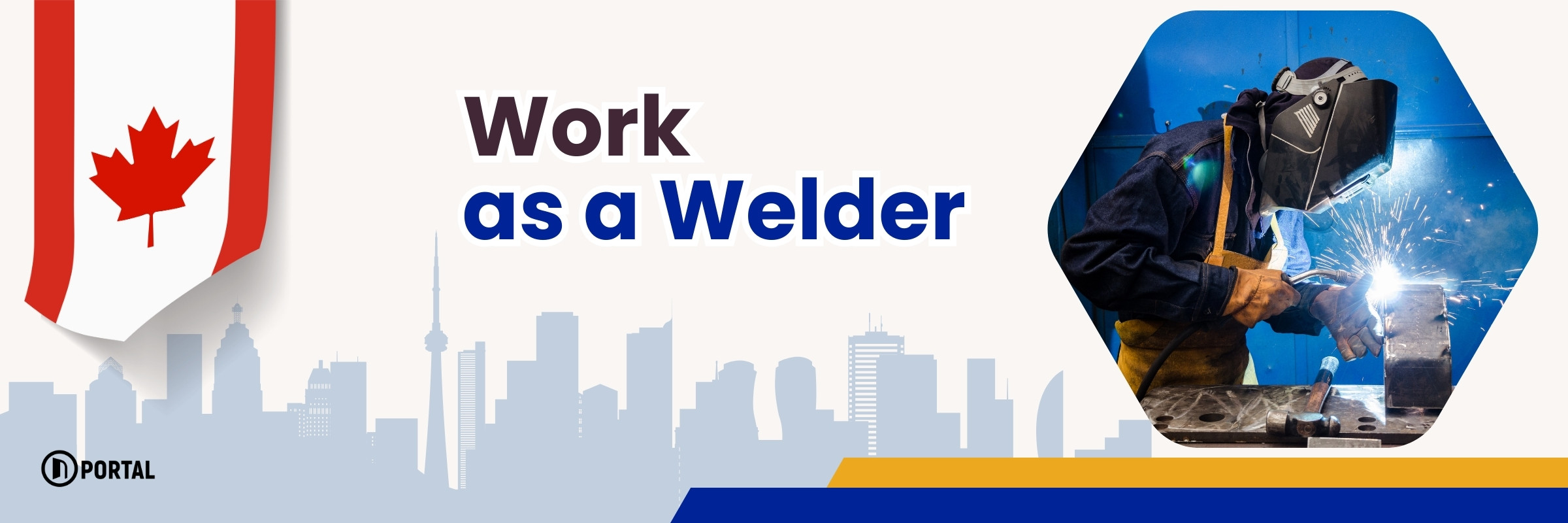
Work as a welder for Canadian construction companies, metal fabrication shops, and manufacturing firms.
This position is eligible under two Canadian work permit programs:
Francophone Mobility Work Permit: For bilingual applicants. This option does not require an LMIA, making the process faster and simpler.
Regular LMIA Work Permit: For applicants who do not qualify for Francophone Mobility. This requires a Labour Market Impact Assessment (LMIA) from the employer. French is not required, but English is required.
Welders are among the most in-demand skilled trades in Canada. This role provides stable employment, competitive wages, and excellent pathways toward permanent residency.
As a welder in Canada, you will:
Read and interpret blueprints, drawings, and welding specifications
Operate welding machines and equipment (MIG, TIG, arc, gas, etc.)
Join metal parts using appropriate welding techniques
Repair, cut, or modify metal structures and components
Inspect welds for quality and safety standards
Maintain and calibrate welding equipment
Work with other tradespeople in construction, manufacturing, or industrial settings
Follow safety regulations and wear protective gear at all times
Language:
Francophone Mobility: Good English + B1 level French test (or proof of French-language education)
LMIA Work Permit: Good English (French not required, but an asset)
Education: Minimum high school diploma; welding apprenticeship, vocational training, or certification is an asset
Experience: At least 1–2 years of professional welding experience
Skills:
Knowledge of different welding techniques (MIG, TIG, stick, gas, etc.)
Ability to read blueprints and technical specifications
Strong attention to detail and precision in welding
Physical stamina and ability to work in industrial environments
Safety awareness and teamwork
Applicants may qualify under Francophone Mobility (no LMIA required) or LMIA Work Permit (employer applies for LMIA)
Once hired, immigration consultants will assist with the work permit process
Yes. Welder jobs usually fall under TEER 3, which is PR-eligible. Work experience as a welder can count toward the Canadian Experience Class or Provincial Nominee Programs (PNPs).
Manufacturing plants, construction firms, shipyards, oil & gas companies, and metal fabrication shops across Canada regularly hire welders.
Yes. Since welder jobs are classified as TEER 3, your spouse may be eligible for an open work permit, and your children may qualify for study permits.
Francophone Mobility: For French-speaking applicants. Faster process, no LMIA required, less paperwork for employers, lower service fees.
LMIA Work Permit: For non-Francophone applicants. Requires employer to prove no Canadian worker is available. More complex, takes longer, and usually involves higher service fees.
Work permits are usually issued for 1–3 years, depending on your job offer. They can often be renewed if your employer extends your contract.
Yes, but you will need to apply for a new work permit tied to your new employer.
Absolutely. Our team assists with job matching, paperwork, the French test (for Francophone applicants), LMIA processes, and your entire work permit application.
The process — from job offer to receiving your work permit — can take up to 1 year, depending on whether you apply under Francophone Mobility or LMIA, your profile, employer response time, and visa processing times.